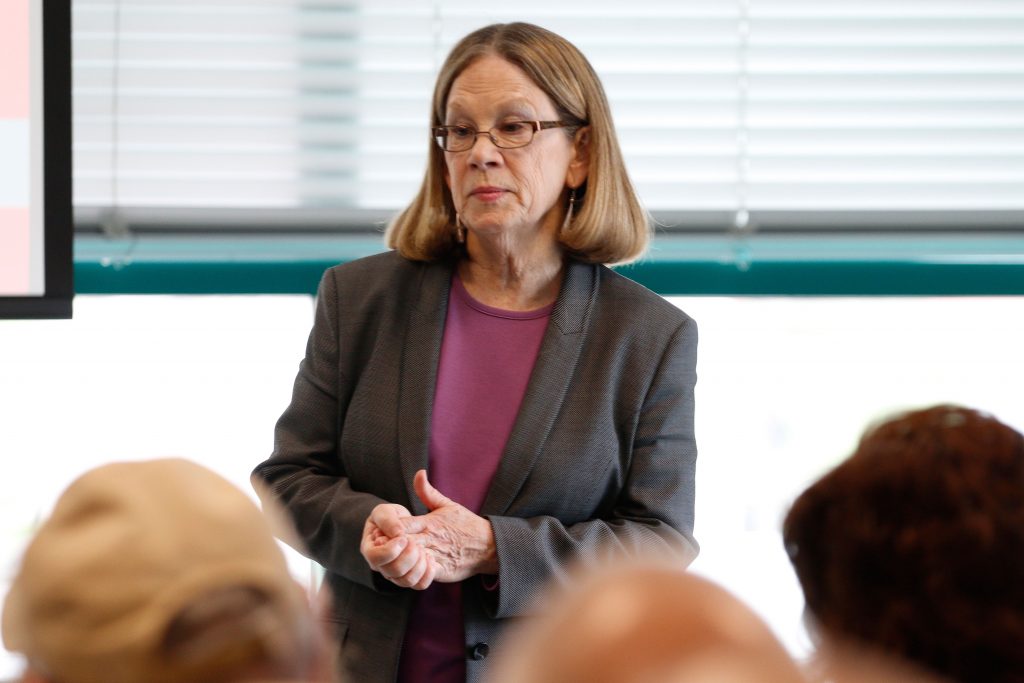
In the New University Union on Wednesday, May 5, over a dozen faculty members gathered to listen to the dean of the graduate school, Susan Strehle, introduce plans for a graduate program in public health. This program will seek to provide students with the skills to analyze and address threats to human health both globally and locally.
Strehle stated that this master’s in public health (MPH) is a vital degree in health sciences fields and is frequently taken by students who go on to become healthcare professionals such as doctors, nurses, pharmacists and social workers. She said the program will provide graduates with the necessary skills and credentials for careers in public health, and is expected to begin between fall 2017 and fall 2018.
“They will work for the Centers of Disease Control, the National Institutes of Health and in health departments,” Strehle said. “Locally, in just the Broome County Department of Public Health, there are over 300 employees. ”
She indicated that the public health program will be run out the graduate school office, and will be located in the Johnson City Health Sciences Complex with the Decker School of Nursing and the School of Pharmacy and Pharmaceutical Science. It will overlap academically with a variety of specific departments including biology, anthropology, mathematics, environmental science, nursing and management. Examples of classes in the major include bio-statistics, epidemiology and global health.
“The campus has become far more trans-disciplinary than any other campus in the SUNY system.” Strehle said. “This is a perfect fit for a program in public health which is an inherently interdisciplinary program.”
Strehle presented the new program as a part of a University-wide initiative to double graduate enrollment at the University from 3,000 to 6,000 students by 2020. Strehle said that the University cannot just expand enrollment in current programs because of limited budgets.
“We can’t just shoehorn students into existing programs,” Strehle said. “We need to add master’s programs, though not in fields which the University is paying students’ tuition and stipends, but by offering professional programs in fields where students will pay to have them.”
Yvonne Johnston is on the steering committee for the public health program and is a research associate professor at the Decker School of Nursing, and has a Ph.D. in public health from SUNY Albany. She states that this program will provide opportunities to expand enrollment while providing students with a practical and sought after degree.
“When students call the graduate school asking about available programs, they often want to know if Binghamton has an MPH.” Johnston said. “It is in high demand, so we are working to provide it for potential students.”
Katherine Wander, an assistant professor in the department of anthropology and an attendee of the lecture, stated that she believes that the program has a lot of potential. Wander stated that studying public health is significant to both the local and global community, especially due to the rising threat of climate change.
“As temperatures change, mosquitoes’ habitable environments change, and they bring with them mosquito-born illnesses, such as West Nile, Zika, and even malaria could come to the United States,” Wander said. “Climate change is going to have an effect on economics, and nothing is more important to public health than socioeconomic status.”
Johnston also stressed the importance of the public health field to society.
“All you have to do is look at Flint, Michigan, to realize why it is vital to have people knowledgeable about public health,” Johnston said. “Public health touches every aspect of every person’s life.”


